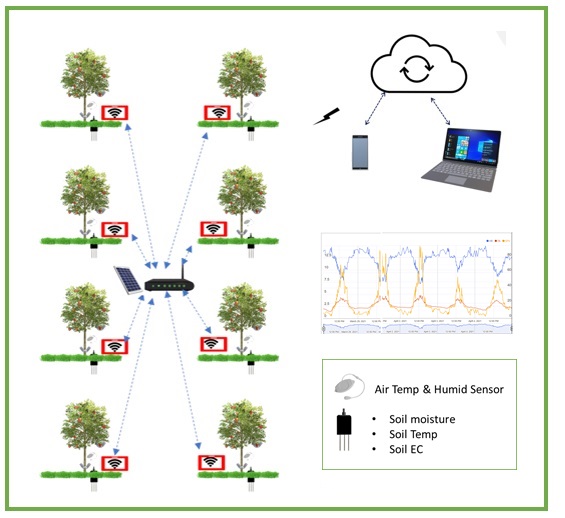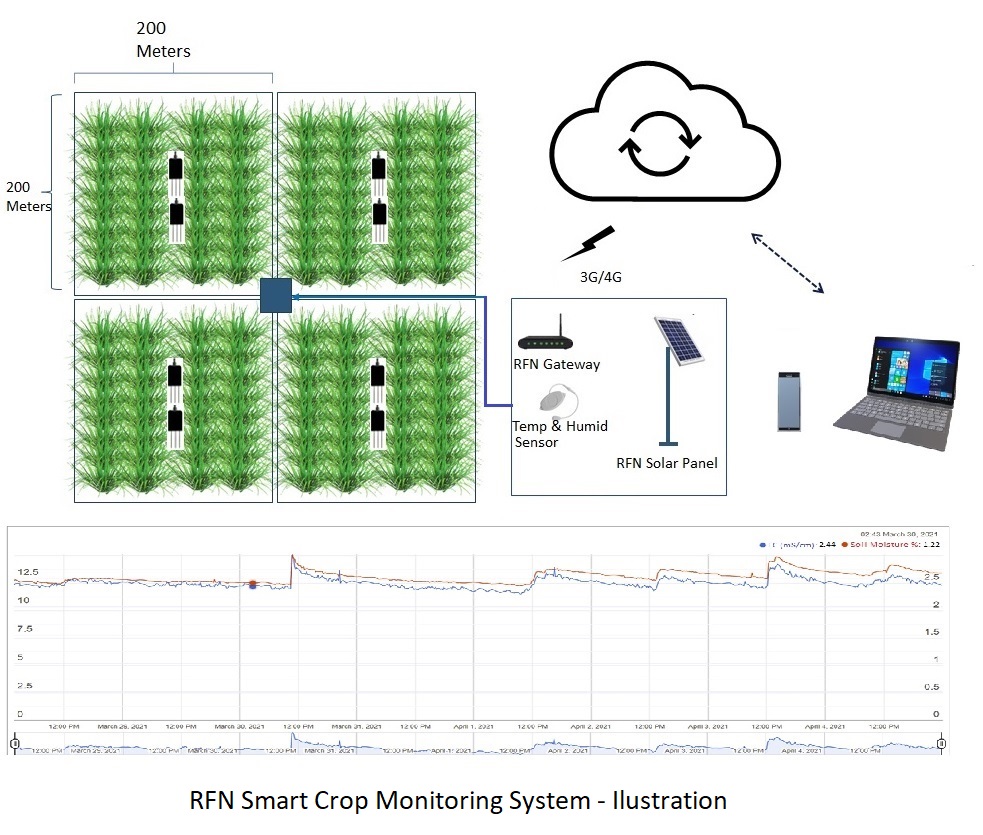
Smart Crops Monitoring System
General
Precision agriculture uses information gathered from different data sources (e.g., sensors, satellite images, etc.) to optimize the agriculture procedures – to use less and grow more – higher crop quality, water-saving, quicker collection time, etc.
How it Operates
The RFN Smart Crops Monitoring System uses five wireless sensors – three to provide soil indicators (Moisture, Temp, and Electrical Conductivity), and two air indicators (Temp & Humidity). The wireless sensors collect the data and send it periodically to a central RFN-Gateway, which transmits it via a cellular network to an application in the cloud. The application analyzes the data and provides recommendations (e.g., when to water the plants). The service includes a soil sample examination and satellite images analysis performed by an agronomist, who provides initial recommendations about the number of ECs per Hectare, the in-ground depths definition, and the system parameters setting. The collected data can be stored for an extended period, to provide statistics trends and comparisons to previous crop cycles.
Base on our customers’ experience, the main saving cost factors (depending on the crops & soil types) are:
- Reduction in the water consumption – 25-40%
- Reduction in the fertilizers consumption – 25-35%
- Increase in quality: 5-10% increase in first quality (commercial quality)
The solution also includes the following RFN components: RFN Tags, RFN Gateway, RFN Solar module and application (mobile and web). The system can be extended to include additional sensors, such as dendrometers, tensiometers, etc.

Hahadas 2, Or Akiva, Israel| Phone: +972-54-3211441,+972-54-761-1742 | Email: Sales@rf-networks.com
Copyright © 2021 RF-Networks